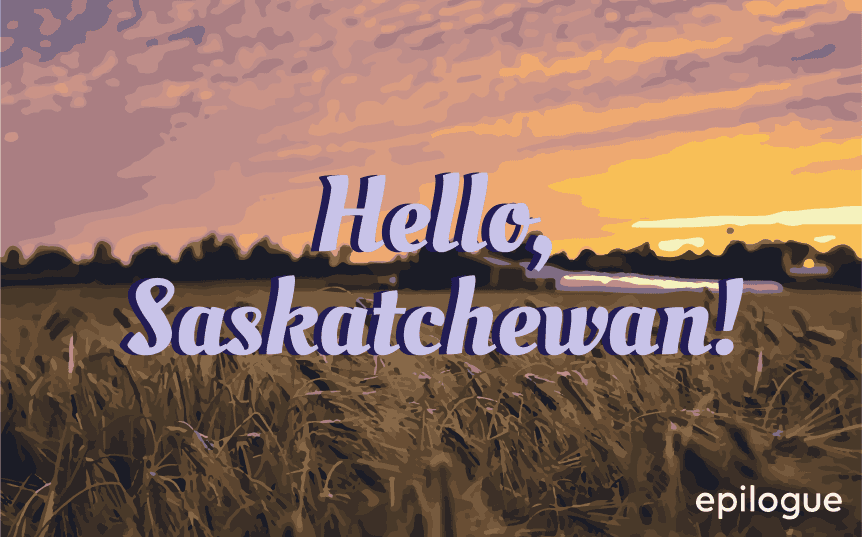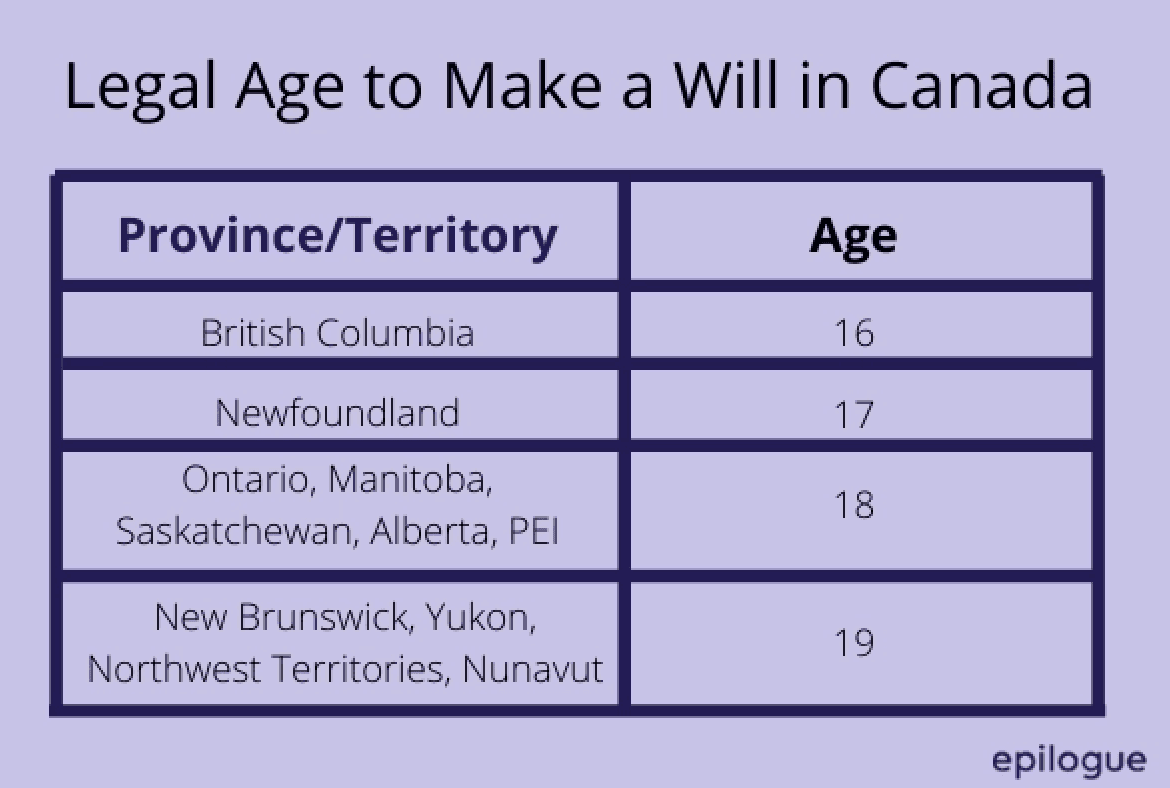Saskatchewan Estate Law 101: Here’s What You Need to Know About Wills & Estates

Hey Saskatchewaners,
Looking for Saskatchewan estate law help? Aren’t we all!
We know just how overwhelming and confusing navigating the world of Wills can be. We’ve seen it first hand since were former estate lawyers ourselves. But we’re also real humans who, despite being lawyers, just hate all the unnecessary legal jargon that makes this already challenging process even harder.
That’s why we’re here to guide you through navigating Saskatchewan Wills and estates. Keep reading to get answers to everything Saskatchewan estate law – & we promise it’s all legal jargon free. 😉
What’s the definition of a “Last Will and Testament”?
A Will, also known as a “Last Will and Testament”, is a legally binding document that outlines your final wishes for the distribution of your assets after you die.
A Will determines:
Who will take care of your minor children or pets
Who will receive your assets
Who will manage your estate when you’re gone
Read more about Will basics here.
What happens if I die without a Will in Saskatchewan?
When someone dies without a Will, it’s called dying “intestate.” When someone dies intestate, they don’t get a say in important decisions like how their assets get distributed, who gets to be in charge of the process, and who will take care of any minor children.
The rules about how assets are distributed depend on the person’s family situation. Here are some of the rules that apply to someone who dies without a Will in Saskatchewan:
A spouse and no children: The spouse gets everything.
A spouse and children: The spouse gets everything.
If there is only one child:
Half of the remainder goes to the spouse
Half of the remainder goes to the child (or their children if the child is also not alive);
If there is more than one child, ⅓ of the remainder goes to the spouse and the children split the other ⅔ (with any share of a predeceased child going to their children)
A spouse and children from other relationships: The spouse gets $200,000 “off the top,” and then:
Children but no surviving spouse: Everything is split equally between children. If a child is not alive but has kids of their own who are alive (grandchildren of the person who died intestate), the deceased child’s portion is shared equally among them.
If the parents aren’t alive, everything gets split between the deceased’s siblings (or the descendants of a sibling who is not alive.)
If the parents and siblings and nieces and nephews aren’t alive, everything is split equally between grandparents.
If no one mentioned above is alive, shares are split equally between that grandparent’s children (the deceased’s aunts/uncles)
No living spouse or children: Everything goes to the deceased’s parents (or surviving parent, if there is only one).
What’s the legal age to make a Will in Saskatchewan?
The legal age to make a Will varies across Canada, depending on the province you live in.

If you’re 18 years or older (and of sound mind), you’re able to make a Will in Saskatchewan. Keep in mind that exceptions can be made for anyone in the military and anyone who is legally married or emancipated. Now, we realize most 18-year-olds aren’t thinking about their own death. After all, you’re just starting to live life! But estate planning is a great practice to start at a young age.
🙌Plus, if you make your Will with an online Will company in Saskatchewan like Epilogue, you can always log in to your dashboard and update your documents anytime, for free.
Who will take care of my children if I die in Saskatchewan?
If one parent passes away before the other, the surviving parent is the legal guardian. If the last surviving parent passes away while their children are still minors, a legal guardian should be named in their Will.
How to choose a guardian
Choosing a guardian for your kids is possibly one of the most difficult choices you’ll have to make when completing your Will. Ask yourself who would be up to the job both financially and emotionally, as well as who would be able to raise your children the way you would want.
Consider things like:
What are their religious values and beliefs?
Do they live far away from your kids’ school and friends?
Do they have children already

Click here for a comprehensive guide on how to choose a guardian.
What is a common law spouse entitled to in Saskatchewan?
According to Saskatchewan’s intestate rules, someone is considered your “spouse” if you:
Have been legally married
Or if you have cohabited for at least 2 years & were living together at the time of the death (or within the 24 months before death)
This means that if you pass away without a Will in Saskatchewan, a common law partner is legally entitled to the same share of your estate as a spouse.
In other provinces, like Ontario, they aren’t legally entitled to anything. If you have a Will, you get to decide how much of your estate your common-law partner will get, rather than relying on the rules in the province to get it right. In short, having a Will gives you a lot more control.
Can I make an online Will in Saskatchewan?
Absolutely! Saskatchewan online Wills are becoming an increasingly popular option because they eliminate the pain and price of visiting a lawyer.
🙌 Epilogue Wills offers a best-in-class online Will service in Saskatchewan.
Founded by two former tax and estate lawyers with over a decade of combined experience, an Epilogue Will gives you a lawyer-quality Will but without the legal fees or in-person office visits.
With Epilogue, you get:
An easy-to-use, simple platform
A personalized legal document that is based on your unique life situation
All in as little as 20 minutes
Free and unlimited updates to your Will
No hidden fees!
Are online wills legal in Saskatchewan?
Yes, online Wills are fully legal in Saskatchewan – as long as they meet the requirements for a legal will.
For a Will to be legal in Saskatchewan, it must meet the following criteria:
You must be over 18 years of age and of sound mind
The Will must be printed out (not digital)
The Will must be physically signed by you
2 witnesses must also physically sign the Will
Your witnesses can be almost anyone but should not be:
Anyone who’s a beneficiary under your Will (generally family members)
The spouse/partner of any beneficiary under your Will
Anyone else who can potentially benefit under your Will (like the child of a beneficiary)
Minor children

Don’t I need a lawyer to make my Will?
A lawyer isn’t required to make legally binding Wills in Canada. Anyone who needs a basic Will can quickly and easily make one using an online platform.
When should I seek legal advice?
If you have a more complex estate or situation, an online Will platform may not be right for you. We recommend talking to a professional for legal advice if any of these apply to you:
You want to exclude a spouse or child from your Will
You’ve had multiple marriages
You have a child with a disability who is receiving government benefits
You have
You want to engage in sophisticated tax planning
How is a Power of Attorney different in Saskatchewan?
Generally speaking, Powers of Attorney (POAs) are legal documents that let you appoint someone else to make decisions regarding your health and/or finances, should you become mentally incapable of doing so yourself.
In Saskatchewan, you can appoint one POA for financial matters and a separate one for personal matters (e.g. where the incapable person is going to live).
These are often combined in a single document called an “Enduring Power of Attorney for Property and Personal Care”.
For Witnessing:
An Enduring POA can be signed in the presence of 1 witness if that witness is a lawyer.
If there is no lawyer to witness, 2 witnesses are required.
Know that the witnesses cannot be relatives of the person giving the Enduring POA (the “grantor”) or any of the people who are named as attorneys under the POA.
What is a Health Care Directive?
A Health Care Directive appoints someone referred to as a “Proxy” to make health care decisions for someone if they don’t have the mental capacity to make those decisions for themselves.
This document needs to be dated and signed by the person making the directive but technically does not need to be witnessed.
As is the case in most provinces, when two people are appointed to act jointly, they need to agree on all decisions. However, unlike in other provinces, if two Saskatchewan Proxies cannot agree on a decision, the person who is named first in the Directive gets to make the final decision.
How much does it cost to make a Will in Saskatchewan?
If you go to a traditional estate planning lawyer in Saskatchewan, you can expect to pay anywhere from $400 to several thousand dollars (depending on the complexity) to make a Will. Plus, you’ll also have to pay every time you want to update it. That means an extra $250 an hour any time you buy a property, have another child, increase your wealth, or even adopt a pet).
BUT, if you go with a Saskatchewan online Will service like Epilogue, it costs under $200 – one time only, no matter how many updates you make.
How do I make a Will in Saskatchewan? Let’s get started.
For anyone in this beautiful farmland province, creating a Will, Power of Attorney, and Health Care Directive is now doable in four easy steps.
Here’s how it works:
Visit https://epiloguewills.com and click "Start My Will"
Complete the questionnaire
Generate your documents
Print and sign them according to the detailed signing instructions included
If you still have questions or need any help, feel free to reach out to us anytime via the live chat in the bottom right corner or send us a message and we will get back to you as soon as we can! Please note we are not able to offer legal advice.










